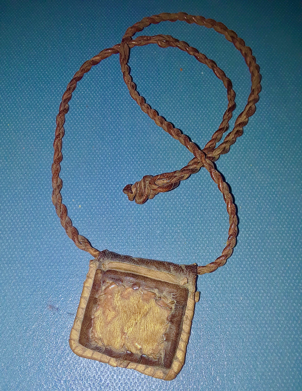Some villagers brought medications with instructions in English, Russian, French or German. They could read none of these languages, so I translated them as best I could. For the Russian medicines, I would tell them that—like them—I couldn’t read these labels. Others came asking for money, or food, or books, or just time to chat with me. Some Chadians believed that just being with a white man heightened their stature in their tribes.
In 1977 I had begun my Peace Corps assignment as a high school English teacher in Baibokoum, a small village of about 4,000 in the central African nation of Chad. I was the only non-Chadian residing there. I taught six days a week, from 7 a.m. until 12:30 p.m. When I was not teaching, villagers would approach my house every afternoon with requests.
As the only foreigner, I recognized that many people in my village had never encountered someone like me. Visiting the market was an especially uncomfortable experience. Some Chadians bowed when they saw me, while children sometimes ran away shrieking and in tears.
My students told me that I was careless for not building a fence to control who had access to me. They also said the small clumps of grass in front of my house were being nibbled away during the rainy season by free-roaming goats. They were concerned that I was not protecting this asset.
The parade of villagers every afternoon took its toll on me. I finally allowed my students to build a straw fence the height of a person. They were anxious to earn some money and I was eager to limit the constant stream of visitors. Once it was in place, few villagers approached my house and I could read or prepare my lessons on my front stoop, undisturbed. Since the fence was tall enough, I could see just above the top to view whatever people were carrying on their heads as they passed my house. I watched a parade of baskets, full of mangos or limes, plastic tubs of goat or beef brochettes ready to cook, metal pots smudged with charcoal, bundles of branches, or buckets of water transported from the river three miles away.
One day I see a woman kicking down my straw fence. I run to the spot where she is screaming at me to tell her to leave the fence alone. She keeps kicking the straw and pointing at the ground. Since she is speaking very fast, in Ngambaye (the local dialect), I can’t understand what she is saying. I can tell by her hand movements, however, that she is describing a snake.
Together, we search all around the outside of my house, then discover the snake settled under a rock near my well. The woman takes the long stick she carries and smashes the snake’s head.
I was astonished. A woman who didn’t know me, a woman who probably had heard stories about this white man who closed himself off from the people and didn’t want to share anything—this was the woman who decided to warn me about the danger I was in. I was mystified by her generosity—and her bravery.
Before she left, she handed me a charm made of some animal skin and leather. A woven cord made it easy to wear around my neck. She said the pouch contained some ‘magic herbs’ inside. She told me the charm would keep the evil spirits away from me.
The woman asked if she could take the snake’s body with her. Later that night, she returned with a snake-and-peanut stew for us to share. I was amazed. She had taken something threatening—the snake—and transformed it into a meal that fortified each of us.
I did not re-build the fence during the next fourteen months of my assignment. I welcomed the stream of villagers seeking my advice or just wishing to spend time with me. I had traveled to Chad to work, to serve, to help. This charm reminds me that by keeping myself open to others, to those who seek my help, to those who ask more from me than I think I am able to give—that in such circumstances, I find my most genuine satisfaction. In Chad, I learned the lesson of a lifetime: that we should always fight the urge to build a fence.

Recent Posts
Poetry, Democracy, and the Vineyard of Renewal
At the moment of veraison* We don’t yet know how sour Is the fruit. A far Trumped tower Makes the grapes appear appetizing....
What My Albatross Steals
Storms are a delight for my albatross. This diver sails giddy on gusts, soaring over volcanoes Threatening to erupt, unspooling lava fields That...
The Wounded Gazelle Look
After you depart, I act on your request: To a mountaintop or to the Ganges. To seek a Somewhere for ashes to scatter....


